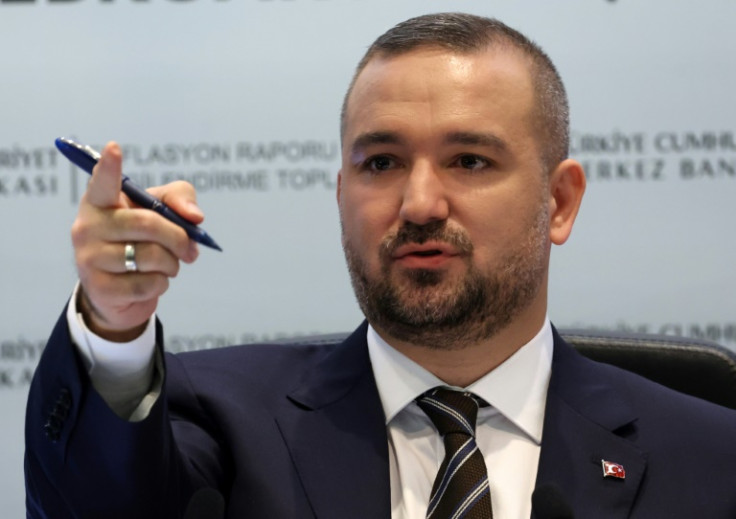
Turkey's central bank maintained its key interest rate at 45 percent on Thursday, marking the end of its monetary tightening cycle after eight consecutive months of hikes.
It was the first rate decision delivered by the bank's newly appointed governor Fatih Karahan, a former economist at the Federal Reserve Bank of New York and US online retail giant Amazon.
The bank said that "the current level of the policy rate will be maintained until there is a significant and sustained decline in the underlying trend of monthly inflation."
Turkey's annual inflation rate held stable in January at nearly 65 percent, but month-on-month consumer price increases jumped sharply following a huge minimum wage hike.
The monthly inflation rate in January climbed to 6.7 percent, from 2.9 percent in December, following a 49-percent rise in the minimum wage that went into effect in January.
Inflation remains a pressing issue for President Recep Tayyip Erdogan's government ahead of local elections in March.
His ruling AKP party is trying to win back control of major cities, including Istanbul and the capital Ankara, currently held by the main opposition party.
Turkey's central bank, which has raised its key rate from 8.5 percent to 45 percent since June, said last month that the level was sufficient to start easing the cost of living crisis.
Karahan said in his first public appearance on February 8 that there was no need for a further rate hike but warned the central bank would review its decision if the inflation outlook deteriorated, opening the door to maintaining the tightness needed to achieve price stability.
The central bank said on Thursday that "monetary policy stance will be tightened in case a significant and persistent deterioration in inflation outlook is anticipated."
Analysts rule out further hikes in the near future.
Liam Peach, senior emerging markets economist at London-based Capital Economics, said in a note that an extended interest rate pause was likely over the coming months.
"With inflation likely to end the year at 30-35 percent, there is still a possibility that the central bank starts an easing cycle before the end of the year, which many analysts are expecting," he said.
"But our baseline view remains that interest rates will stay on hold throughout this year and that rate cuts won't arrive until early next year."
During a rally in western province of Denizli, Erdogan said: "We will breathe easier with the rapid fall of inflation by the end of this year."
Karahan took over the job after Turkey's first woman central bank governor Hafize Gaye Erkan resigned at the beginning of this month, less than a year into her tenure.
The 44-year-old came under stinging attack on social media and in some opposition publications for allegedly allowing her father to make unauthorised personnel decisions at the bank -- claims she denied.
Bartosz Sawicki, market analyst at Conotoxia, said Karahan followed his predecessor's guidance that the tightening cycle had been completed in January.
The lira is trading at all-time lows against the US dollar.
Conotoxia's forecasts assume "no respite" for the Turkish currency in sight and further declines to about 35 lira to the dollar remains its baseline scenario for 2024.
The lira traded at 30.99 against the greenback on Thursday afternoon.







